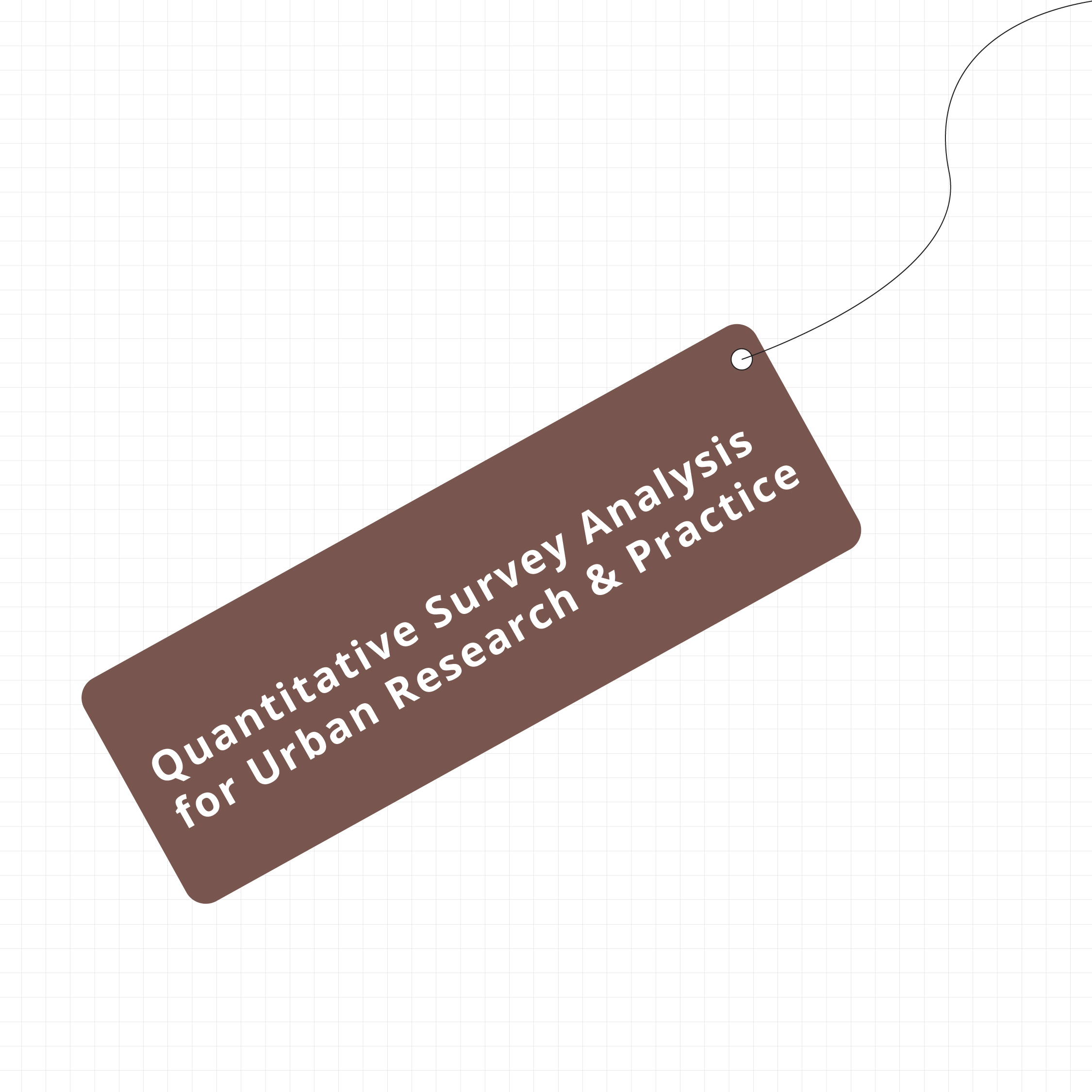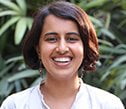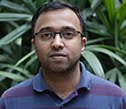

Registrations Closed
Taught by the IIHS Urban Informatics Lab, Quantitative Survey Analysis for Urban Research and Practice focusses on building a basic understanding of sample surveys, and prepares participants to use quantitative survey datasets in their work, in a meaningful way. The methods are demonstrated with example problems, largely drawn from a variety of thematic areas, using public datasets like the National Sample Survey, Periodic Labour Force Survey and National Family Health Survey. Basic familiarity with exploratory data analysis and tools like Excel will be useful. No prior experience with statistical inference is assumed. The course is delivered online, through a mix of lectures, live demonstrations, quizzes and practice sessions in small groups.
Who this is for
- Young researchers working in academia or in the social sector, who want to start using basic quantitative methods in their work, and understand such work done by others
- People employed in the government, NGOs or private sector, working in the broad areas of urbanisation, sustainable development or public policy, who want to use simple quantitative methods to highlight the patterns in the data relevant to their work
- Masters/ PhD students, who are interested in acquiring basic data analysis skills and applying them in their projects
This course will enable participants to:
- Understand the concept of random sampling
- Appreciate how sample surveys are conducted; understand complex survey designs including the ideas of multi-stage sampling and stratification
- Understand basic inferential methods like estimation and comparison
- Read and understand basic results from various statistical tests and regression analysis
- Gain conceptual clarity on how simple forms of regression analysis can be performed
Herry works in the IIHS Urban Informatics Lab and applies quantitative methods, mixed methods and spatial data analysis across multiple practice and research projects. He has worked on projects related to urbanisation, economic development and transit-oriented development. In addition to the national-scale public data sets, Herry is familiar with various housing and real estate data sets available at different spatial scales. He regularly teaches courses in the Urban Fellows Programme and has also taught capacity building workshops on data visualisation. Herry has a Bachelor’s in Civil Engineering from Nirma University and a Master’s in Urban Planning from University of Southern California.

Rohit works in the IIHS Urban Informatics Lab and applies quantitative methods to study public problems relating to health, income, economy, employment, and education. He has been involved in estimating incomes at a regional scale to inform the local policy level decisions. Similar to this line of idea of creating data evidence at the local level, Rohit has been studying child health using publicly available datasets. He is actively involved in teaching in the IIHS Urban Fellows Programme and Research Methods Suite. Rohit has a Master’s in Public Policy and Governance which allows him to look at public problems from a cross-thematic lens that directly translates into teaching and research practices that he is involved in.
Shriya is a faculty member at the Indian Institute for Human Settlements (IIHS), teaching topics related to urban economic development and quantitative research methods. She anchors the IIHS Urban Informatics Lab, and her research at IIHS is primarily centred on the Indian urban economy and economic geography, with a particular focus on the role of employment in urban development and poverty reduction. She has worked extensively with datasets from the Census of India, the National Sample Survey Organisation (NSSO), and the Economic Census for various research projects. Shriya holds a Master’s in Public Affairs with a concentration in Economics from Princeton University, and a Master’s in Mathematics from Cambridge University, UK.
Sooraj works in the IIHS Urban Informatics Lab. His current focus is in applying statistical models to disaggregate previously aggregated demographic and socio-economic data from the Census and national-scale sample surveys. He applies computational and statistical methods on urban data to develop a comprehensive understanding of India’s complex urban transformation. He has been teaching multiple quantitative methods courses for the IIHS Urban Fellows Programme. Sooraj has been part of multiple quantitative methods and data visualisation training workshops for different organisations, including Atal Bihari Vajpayee Institute of Good Governance and Policy Analysis (AIGGPA) in Bhopal;GIZ (Deutsche Gesellschaft für Internationale Zusammenarbeit); and Center for Internet & Society (CIS) in Bangalore. Sooraj’s academic training is in computer science and statistics.
Programme Structure
- Combination of lectures and discussions, tool demonstrations, hands-on activities in small groups, presentations and quizzes
- Active hand-holding and individual feedback from the faculty
- Ample peer-learning opportunities
Key Differentiators
- Draws on examples from research questions relevant to urban research and practice in the Indian context
- Uses various official statistics and administrative data sets from India, which may be directly applicable to many participants’ work
- Focus on conceptual understanding along with hands-on practice to provide participants with skills that they can immediately put into use
Programme Details:
- Format: Online
- Dates: 6, 7, 13 and 14 September 2024
- Fees: Rs.7,750/- + 18% GST
- Maximum cohort size: 30
For more information, get in touch at upp@iihs.ac.in or on 9611911169
Session Plan
| Content |
| Session 1
This session introduces the idea of random sampling and discusses the basics of how sample surveys are designed. Multi-stage sampling, stratification and survey weights, with examples from public datasets in India, are briefly discussed. |
| Session 2
With the help of multiple simple examples, the basics of statistical inference, covering estimation and comparison are introduced. Confidence intervals, hypothesis testing and p-values, and estimate these using Excel are discussed; the session concludes with a quiz to reinforce concepts. |
| Session 3
Exploration of statistical inference by discussing the idea of regression analysis is continued, with a demonstration of a simple example, where learners are shown how linear regression can be performed and results interpreted. There is further practice using PLFS data, covering linear regression and logistic regression. |
| Session 4
In this session, there is extensive hands-on practice using unit-level National Family Health Survey data. Review and critique of a few papers and reports that use regression analysis are done. Learners work in groups to do analysis and discuss learnings with the larger class. |
Week 1
| Friday, 6 September 2024 | |
| 2:00 pm – 3:30 pm | Random Sampling and Sample Surveys (Part 1) |
| 4:00 pm – 5:30 pm | Random Sampling and Sample Surveys (Part 2) |
| Saturday, 7 September 2024 | |
| 9:30 am – 11:00 am | Basics of Statistical Inference (Part 1) |
| 11:30 am – 1:00 pm | Basics of Statistical Inference (Part 2) |
Week 2
| Friday, 13 September 2024 | |
| 2:00 pm – 3:30 pm | Exploring Statistical Inference with Regression Analysis (Part 1) |
| 4:00 pm – 5:30 pm | Exploring Statistical Inference with Regression Analysis (Part 2) |
| Saturday, 14 September 2024 | |
| 9:30 am – 11:00 am | Hands-on practice with National Family Health Survey data (Part 1) |
| 11:30 am – 1:00 pm | Hands-on practice with National Family Health Survey data (Part 1) |
<< Back






